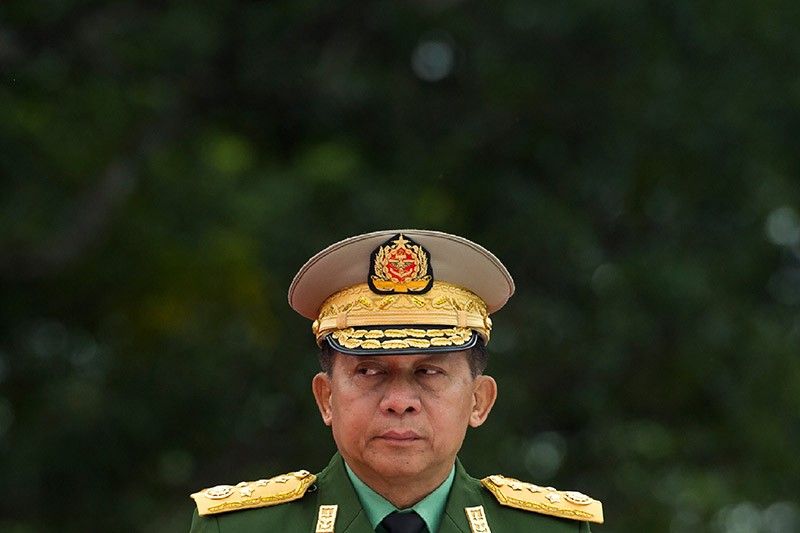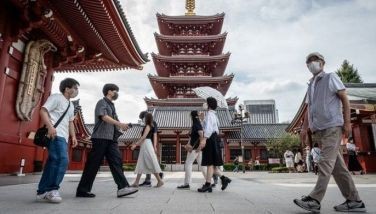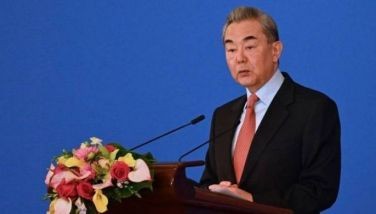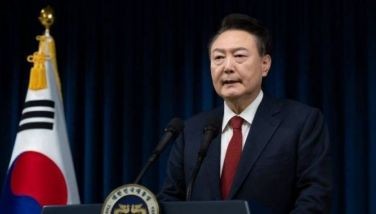Myanmar army chief defiant after UN 'genocide' probe

YANGON, Myanmar — Myanmar's powerful army chief says the United Nations has no right to interfere in his country's sovereignty, a week after UN investigators called for him and other top generals to be prosecuted for "genocide" against the Rohingya.
Min Aung Hlaing's comments to an army newspaper were his first public reaction since a UN fact-finding mission urged the Security Council to refer the top military brass to the International Criminal Court (ICC).
They came as the UN General Assembly prepares to discuss the crisis in New York.
Min Aung Hlaing also shrugged off demands from UN investigators for the army to withdraw from politics in Myanmar, where it remains hugely influential despite a nominal transition to civilian rule in 2011.
No country, organization or group has the "right to interfere in and make decision over sovereignty of a country," military-run newspaper Myawady quoted him as telling troops in a speech Sunday.
"Talks to meddle in internal affairs (cause) misunderstanding."
The 444-page UN probe report, compiled over 18 months, outlined in meticulous and searing detail atrocities against the Rohingya, who fled a violent military campaign that started in August last year.
Troops, sometimes aided by ethnic Rakhine mobs, committed murder, rape, arson and torture, using unfathomable levels of violence and with a total disregard for human life, investigators concluded.
More than 700,000 of the stateless Muslim minority took refuge in Bangladesh, where they remain—fearful of returning to mainly Buddhist Myanmar despite a repatriation deal between the two countries.
The military has denied nearly all wrongdoing, justifying its crackdown as a legitimate means of rooting out Rohingya militants.
But rights groups and the UN say the operations were vastly disproportionate and a troop build-up in the area occurred before insurgents attacked police posts in August 2017.
'Very flustered'
Further pressuring Myanmar, the ICC independently ruled that it had jurisdiction to open a preliminary investigation, even though the country has not signed the treaty underpinning the court.
Any road to prosecution would be long and fraught with political difficulties, but analysts say the generals are feeling the heat.
"We're hearing informally that they're very, very flustered about what's happening at The Hague," said Khin Zaw Win, director of Yangon-based think tank the Tampadipa Institute, in reference to the ICC's headquarters.
Last month Facebook removed the pages of Min Aung Hlaing and other top generals, accusing them of sowing ethnic divisions in a country where the social media platform enjoys excessive influence.
Myanmar's civilian government led by Aung San Suu Kyi rejected the UN report's findings as "one-sided" and "flawed" and dismissed the ICC's authority.
Suu Kyi's government shares power with the still-mighty army, which retains control over a quarter of parliamentary seats and three key ministries.
The UN team also criticised the Nobel laureate's government for "acts and omissions" during the Rohingya crisis that "contributed to the commission of atrocity crimes".
In a rare, if understated, criticism of the military, Suu Kyi recently said the situation "could have been handled better".
The army chief made it clear that the Tatmadaw, as the military is known locally, has no intention of extracting itself from politics.
"Take a look at the democracy practices in the world, the countries exercise the democracy system suited to them," he said, adding that the country must end armed conflict on its road to true multi-party democracy.
"The Tatmadaw will continue its efforts to achieve eternal peace," he said.
The Rohingya languishing in refugee camps in Bangladesh refuse to return to a Myanmar that does not grant them citizenship.
In his speech the army chief doubled down on the narrative widely held in Myanmar that the minority are outsiders, calling them "Bengalis" and insisting that the law which fails to recognise the group among the country's many ethnicities would remain in place.
British Foreign Secretary Jeremy Hunt, given the cold shoulder by the army chief on his visit to Myanmar last week, will chair a foreign ministers' meeting on the crisis later Monday in New York.
- Latest
- Trending
































